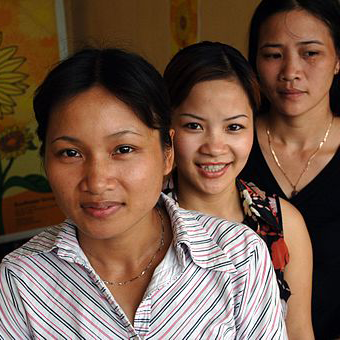Gender, Sex, Age, and Disability in Humanitarian Response

This page brings together multiple projects related to sex, age, and disability in humanitarian response.
Visit the tabs below to learn more about the projects.
Visit the Sexual Assault and Humanitarian Workers page to learn more about that project.
Academic research and humanitarian practice amply demonstrate that gender and age differentiation exist in society and that these differences are particularly acute in situations of crisis, but that they are often not taken into consideration in response planning.
This research documents and analyses current practices concerning the collection and use of sex-, age-, and disability-disaggregated data (SADDD) to illustrate the impact of SADDD on humanitarian assistance. It aims to understand how to improve humanitarian agencies’ ability to collect and analyze information based on sex, age, and disability in all phases to help agencies better understand vulnerabilities, needs, and issues of access, when planning and providing life-saving services.
“The Sex and Age Matter report in 2011 was our call to action. The report had a big impact on my own work and influenced CARES’ programming too. We became a lot more conscious of the importance of designing programming based on sex and age, but also disability disaggregated data.”
– Sophia Sprechmann, Secretary General, CARE International
The original “Sex and age matter” report (2011) was funded by CARE International and the UN Office for the Coordination of Humanitarian Affairs.
The updated “Sex, age (and more) still matter” report (2023) was a collaboration with UN Women and CARE International.
“This report could not be more relevant and valuable today. We are currently witnessing an increase in humanitarian crises which exacerbates gender inequality and disproportionately affects women and girls globally.”
– Sima Bahous, Executive Director, UN Woman

STOP the Sexual Assault Against Humanitarian and Development Aid Workers
This report contributes to understanding, preventing, and responding to sexual assault against aid workers. It presents findings on: who the survivors of sexual harassment and assault are who the perpetrators...

Briefing Paper: Sexual Assault Against Humanitarian and Development Aid Workers
This briefing paper summarizes the findings from a review of scholarly and grey literature, as well as interviews, on the topic of sexual assault against aid workers. The overall study goal is...

Sweden’s Feminist Foreign Policy: Implications for Humanitarian Response
This policy brief presents the implications of Sweden’s feminist foreign policy for the people they strive to assist, Sweden’s own humanitarian policy and operations, and more broadly the whole humanitarian...

Sex and Age Matter Improving Humanitarian Response in Emergencies
This report shows that proper collection, analysis and use of sex and age disaggregated data, or SADD, allows operational agencies to deliver assistance more effectively and efficiently in a crisis.

Executive Summary: STOP the Sexual Assault Against Humanitarian and Development Aid Workers
This is the Executive Summary of the report: STOP the Sexual Assault Against Humanitarian and Development Aid Workers. The report contributes to understanding, preventing, and responding to sexual harassment and...
Using sex and age disaggregated data to improve humanitarian response in emergencies
The article linked below considers the impact of sex and age disaggregated data (SADD) collection and analysis (or the lack thereof). The authors report that SADD are not systematically collected, analysed, or used to their full potential to inform humanitarian response. Published in Gender & Development 2012, Issue 2.
Webinar: Sex, age (and more) still matter launch
In 2011, the first “Sex and age matter” report brought these issues to the forefront of discussions of evidence-based humanitarian assistance. Over a decade later, we joined UN Women and...
STOP the Sexual Assault Against Humanitarian and Development Aid Workers
This video describes the findings from the STOP the Sexual Assault Against Humanitarian and Development Aid Workers study.
